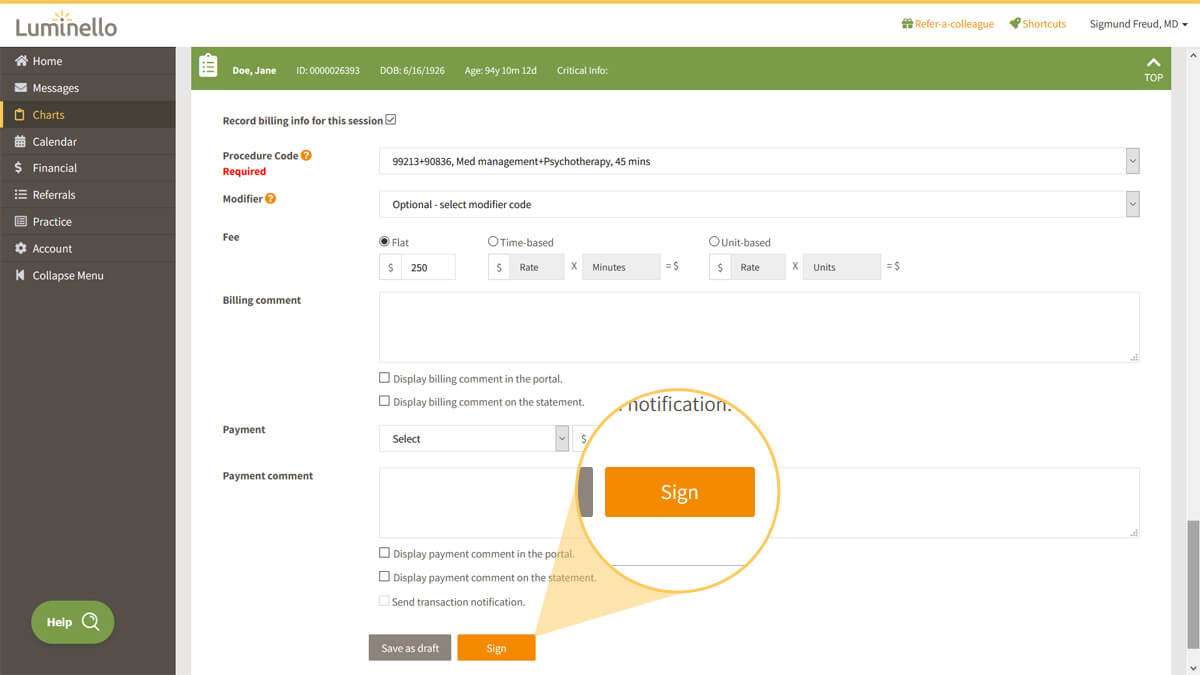What exactly does a psychotherapist do?

A psychotherapist helps people cope with and overcome mental health problems.
A psychotherapist or therapist is a trained professional who assists people with various mental health conditions such as stress, depression, anxiety, insomnia, addiction, bipolar disorder, negative behavior patterns, bipolar disorder, schizophrenia and other debilitating feelings. Psychotherapy is also called talk therapy and can help treat challenges and symptoms associated with mental health and emotional conditions by helping a person understand their repressed feelings, hence equipping them to face new challenges both in the present and future. Psychotherapists are nonjudgmental and compassionate. They are specifically trained to carefully listen and analyze the psychological needs of their patients and help them accordingly.
Psychotherapy is similar to counselling and the two can overlap. Psychotherapy is deeper and addresses the underlying causes of the problems, as well as helps the person solve them. There are different licenses held by professionals who practice psychotherapy, including social workers, licensed professional counselors, psychologists, psychiatrists and mental health nurse practitioners. Although each of them may have different approaches in treating psychological difficulties, many mental health conditions may involve a team of various mental health professionals. This is especially true for more serious conditions such as addiction, schizophrenia, bipolar disorder and major depressive disorder with suicidal tendencies. In many cases, based on the mental health condition, patients require psychotherapy and medication. Healthy lifestyle improvements, such as regular exercise, adequate rest and other specific activities recommended by the psychotherapist also play an important role in the recovery process and overall well-being.
In general, psychotherapists act as a guide toward helping their patients understand their condition and feelings, cope with daily life and manage their mental health to be able to function normally. This includes maintaining relationships and performing adequately at work or school, thus improving their quality of life. The time taken for patients to feel better varies based on their primary diagnosis, their support system and the patients themselves. Some patients feel better after a few sessions, whereas some may need years or lifelong sessions of psychotherapy to manage their mental health. To see positive results, patients ultimately need to understand they have a problem, recognize the need for change and follow the treatment plan advised by the specialist. About 75% of people who have undergone psychotherapy have been shown to benefit from it.
Psychotherapy and medication: In many cases, based on the mental health condition, patients require psychotherapy and medication. For many mental health disorders, medication has proven to be more useful than psychotherapy. In other cases, patients benefit more from a combination of medication and psychotherapy than from either one alone.
What to Expect at the Psychotherapist
Once you’ve found the right psychotherapist for you, you’ll have to do initial paperwork so they can understand you and your medical history. The first few sessions will help your therapist to get to know you and your situation. This let’s them determine the best style of treatment.
Psychotherapists can treat both adults and children. There may be short-term plans to heal immediate issues or long-term treatment plans to treat more complex challenges.
There are multiple types of therapy based on your particular circumstance and preference. These include:
Cognitive behavioral therapy (CBT)
This type of therapy helps you identify and change behavior patterns and thinking that may be harmful to you. You’ll work on replacing them with accurate thoughts and functional behaviors.
Interpersonal therapy (IPT)
This short-term treatment helps you understand your underlying interpersonal issues. It trains you to express your emotions better and improve communication with others.
Psychodynamic therapy
Psychotherapists use this method to address and treat childhood trauma in order to improve behavior and mental wellness.
What is a Psychotherapist?
A psychotherapist is a trained professional who assists those who are suffering with stress, anxiety, depression, bipolar disorder, negative behavior patterns, debilitating feelings, and various other mental conditions.
There are many different licenses held by those professionals who practice psychotherapy, including: Licensed Professional Counselors, Social Workers, Psychiatrists, Psychologists, and Mental Health Nurse Practitioners. Although, each discipline may have subtle differences in approach or style they all utilize “the talking cure” as their primary means of treating psychological difficulties.
In general, therapists act as a guide towards helping their clients find out how they genuinely feel. Some clients feel better and find their solutions in a couple of sessions, while for others therapy may entail be a longer journey. However, for those clients who are courageous enough to be honest, curious, and vulnerable in treatment, the results can be rewarding and ultimately life-enhancing.
Psychotherapists or “therapists” are there to listen to you in a nonjudgmental and compassionate way. They are specifically trained to not only listen to the content of what is being said, but to also hear subtle nuances, defense mechanisms, emotional responses, and psychological needs of their clients. Because of their ability to listen in this way, the client can discuss matters of the heart in a way that allows them to find their own solutions, receive valuable emotional insights, and experience emotional repair.
Let’s go over the main types of therapy and what a psychotherapist does in each.
Types of Therapy
Individual Therapy
This type of therapy is what most people think of when they think about therapy. The idea of “talk therapy” came to be in the mid to late 1800’s and was established by Sigmund Freud. Therapy has had many incarnations, styles, and theoretical leanings since this time. However, at its core, therapy still includes a therapist sitting down with a person and discussing that person’s thoughts, feelings, and beliefs with the intention of bringing them healing and growth.
What do Psychotherapists do in Individual Therapy?
Counselings purpose is to provide help to those who need it. It embraces the adage that ‘an ounce of prevention is equal to a pound of cure’. Individual Counseling creates an environment where emotional pain, deficits, or vulnerabilities can be addressed before they negatively impact one’s life, or disrupt one’s life further. Individual counseling is counseling focused on the individual’s immediate or near future concerns; often times individual counseling includes emotional work that is “intrapsychic” in nature and can include the exploration of beliefs, thoughts, identity, nurturing, barriers, and meaning.
An individual session may consist of different theoretical approaches, including: cognitive behavioral therapy, or CBT, Psychodynamic therapy, logo therapy, or narrative therapy to name a few. In CBT work, the therapist asks the client to focus on the thoughts and patterns that may be a concern in their daily lives. The therapist may then explore with the client how their thoughts relate to their current attitudes or how they are behaving. The client may then be asked to start creating correlations and actions based on what they want to change about their actions in life. The ultimate goal is to help people change patterns that the clients declare as harmful.
Group Therapy
The focus of group counseling is twofold: it serves as a venue to bring together multiple clients with similar experiences and secondly, it provides an opportunity for exploration of “interpersonal” dynamics in an experiential way. This two-fold approach allows for growth in one’s individual identity and as a member of something larger. Interestingly, the other members of the group often serve as a source of insight and support while reinforcing the idea that each individual is not alone in their environment.
What Does a Psychotherapist Do in Group Therapy?
A psychotherapist’s purpose in group therapy is to facilitate each meeting. Group therapy can offer a warmth and sense of community that may not be easily found in other types of counseling. Additionally, this therapy offers the same confidentiality and affirmation that individual counseling offers, but it’s in a larger forum and with other people who may be sharing a similar experience.
Couples Therapy
Couples counseling is a type of psychotherapy for married couples or established partners. It aims to resolve problems in the relationship, enhance levels of intimacy, or help both parties cultivate better ways of relating.
What do Psychotherapists do in Couples Therapy?
In group therapy, the psychotherapists job is to act a a mediator. A couples counselor listens to both parties equally, working to provide a healthy relationship. The therapist is not on any one person’s side: instead, they are acting as an arbiter for your relationship and to help you, as a couple get where you aim to go.
Couples counseling is founded on a base of research that shows how individuals should function within a relationship to get the most out of their own personal desires as well as the desires mandated by a relationship. Psychotherapists can be trained as couples counselors and help people to unlock their own potential by identifying any specific symptoms that may be affecting all parties involved.
Pre-marriage counseling allows for couples to understand how to handle issues and get conversations going before they commit to marriage. Another form of counseling for couples is post-marital therapy, where couples going through a life transition or separation may want to get assistance in working out any differences. Those who seek couples therapy at this point can find a common ground while they discuss arrangements for co-parenting and any issues between each other.
Family Therapy
Family counseling stems from the theory that families operate in a “system”. Family counseling aims at helping your family system function more effectively, allowing each member of the system to have the most opportunities within the family system.
What Does a Psychotherapist do in Family Therapy?
Being a family can be a challenging dynamic. A therapist can provide commentary on your specific family dynamics, allowing the family to self-determine what changes or shifts can be implemented to enhance the overall functioning. Each family is its own culture, with its own mores, codes, and rituals. Effective family therapy takes your family’s specific culture into consideration and utilizes this knowledge as a part of the appropriate course of treatment.
Conclusion
Psychotherapists can help you to cope with mental anguish caused by anxiety, depression, PTSD, and much more. The license a professional who practives psychotherapy can have varies, including LPC, PhD, MD, LSCW, and LPA. While you should should keep which license a psychotherapist has in mind when selecting one, it is not the end all be all.
Therapy also comes in many forms, including individual, group, couples, and family therapy. If you’re interested in scheduling your first therapy session, we’re here to help.




